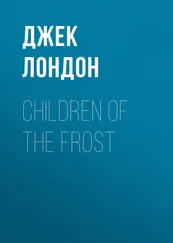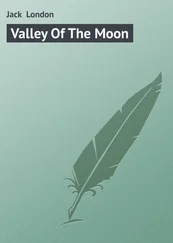Jack London - Children of the Frost
Здесь есть возможность читать онлайн «Jack London - Children of the Frost» весь текст электронной книги совершенно бесплатно (целиком полную версию без сокращений). В некоторых случаях можно слушать аудио, скачать через торрент в формате fb2 и присутствует краткое содержание. Жанр: Классическая проза, на английском языке. Описание произведения, (предисловие) а так же отзывы посетителей доступны на портале библиотеки ЛибКат.
- Название:Children of the Frost
- Автор:
- Жанр:
- Год:неизвестен
- ISBN:нет данных
- Рейтинг книги:5 / 5. Голосов: 1
-
Избранное:Добавить в избранное
- Отзывы:
-
Ваша оценка:
- 100
- 1
- 2
- 3
- 4
- 5
Children of the Frost: краткое содержание, описание и аннотация
Предлагаем к чтению аннотацию, описание, краткое содержание или предисловие (зависит от того, что написал сам автор книги «Children of the Frost»). Если вы не нашли необходимую информацию о книге — напишите в комментариях, мы постараемся отыскать её.
Children of the Frost — читать онлайн бесплатно полную книгу (весь текст) целиком
Ниже представлен текст книги, разбитый по страницам. Система сохранения места последней прочитанной страницы, позволяет с удобством читать онлайн бесплатно книгу «Children of the Frost», без необходимости каждый раз заново искать на чём Вы остановились. Поставьте закладку, и сможете в любой момент перейти на страницу, на которой закончили чтение.
Интервал:
Закладка:
"Nam-Bok, that is very much iron," Opee-Kwan cautioned.
"Ay, it was hard to believe with my own eyes upon it; but I could not gainsay my eyes. And as I looked I heard…." He turned abruptly upon the head man. "Opee-Kwan, thou hast heard the sea-lion bellow in his anger. Make it plain in thy mind of as many sea-lions as there be waves to the sea, and make it plain that all these sea-lions be made into one sea-lion, and as that one sea-lion would bellow so bellowed the thing I heard."
The fisherfolk cried aloud in astonishment, and Opee-Kwan's jaw lowered and remained lowered.
"And in the distance I saw a monster like unto a thousand whales. It was one-eyed, and vomited smoke, and it snorted with exceeding loudness. I was afraid and ran with shaking legs along the path between the bars. But it came with the speed of the wind, this monster, and I leaped the iron bars with its breath hot on my face…."
Opee-Kwan gained control of his jaw again. "And—and then, O Nam-Bok?"
"Then it came by on the bars, and harmed me not; and when my legs could hold me up again it was gone from sight. And it is a very common thing in that country. Even the women and children are not afraid. Men make them to do work, these monsters."
"As we make our dogs do work?" Koogah asked, with sceptic twinkle in his eye.
"Ay, as we make our dogs do work."
"And how do they breed these—these things?" Opee-Kwan questioned.
"They breed not at all. Men fashion them cunningly of iron, and feed them with stone, and give them water to drink. The stone becomes fire, and the water becomes steam, and the steam of the water is the breath of their nostrils, and—"
"There, there, O Nam-Bok," Opee-Kwan interrupted. "Tell us of other wonders. We grow tired of this which we may not understand."
"You do not understand?" Nam-Bok asked despairingly.
"Nay, we do not understand," the men and women wailed back. "We cannot understand."
Nam-Bok thought of a combined harvester, and of the machines wherein visions of living men were to be seen, and of the machines from which came the voices of men, and he knew his people could never understand.
"Dare I say I rode this iron monster through the land?" he asked bitterly.
Opee-Kwan threw up his hands, palms outward, in open incredulity. "Say on; say anything. We listen."
"Then did I ride the iron monster, for which I gave money—"
"Thou saidst it was fed with stone."
"And likewise, thou fool, I said money was a thing of which you know nothing. As I say, I rode the monster through the land, and through many villages, until I came to a big village on a salt arm of the sea. And the houses shoved their roofs among the stars in the sky, and the clouds drifted by them, and everywhere was much smoke. And the roar of that village was like the roar of the sea in storm, and the people were so many that I flung away my stick and no longer remembered the notches upon it."
"Hadst thou made small notches," Koogah reproved, "thou mightst have brought report."
Nam-Bok whirled upon him in anger. "Had I made small notches! Listen, Koogah, thou scratcher of bone! If I had made small notches, neither the stick, nor twenty sticks, could have borne them—nay, not all the driftwood of all the beaches between this village and the next. And if all of you, the women and children as well, were twenty times as many, and if you had twenty hands each, and in each hand a stick and a knife, still the notches could not be cut for the people I saw, so many were they and so fast did they come and go."
"There cannot be so many people in all the world," Opee-Kwan objected, for he was stunned and his mind could not grasp such magnitude of numbers.
"What dost thou know of all the world and how large it is?" Nam-Bok demanded.
"But there cannot be so many people in one place."
"Who art thou to say what can be and what cannot be?"
"It stands to reason there cannot be so many people in one place. Their canoes would clutter the sea till there was no room. And they could empty the sea each day of its fish, and they would not all be fed."
"So it would seem," Nam-Bok made final answer; "yet it was so. With my own eyes I saw, and flung my stick away." He yawned heavily and rose to his feet. "I have paddled far. The day has been long, and I am tired. Now I will sleep, and to-morrow we will have further talk upon the things I have seen."
Bask-Wah-Wan, hobbling fearfully in advance, proud indeed, yet awed by her wonderful son, led him to her igloo and stowed him away among the greasy, ill-smelling furs. But the men lingered by the fire, and a council was held wherein was there much whispering and low-voiced discussion.
An hour passed, and a second, and Nam-Bok slept, and the talk went on. The evening sun dipped toward the northwest, and at eleven at night was nearly due north. Then it was that the head man and the bone-scratcher separated themselves from the council and aroused Nam-Bok. He blinked up into their faces and turned on his side to sleep again. Opee-Kwan gripped him by the arm and kindly but firmly shook his senses back into him.
"Come, Nam-Bok, arise!" he commanded. "It be time."
"Another feast?" Nam-Bok cried. "Nay, I am not hungry. Go on with the eating and let me sleep."
"Time to be gone!" Koogah thundered.
But Opee-Kwan spoke more softly. "Thou wast bidarka-mate with me when we were boys," he said. "Together we first chased the seal and drew the salmon from the traps. And thou didst drag me back to life, Nam-Bok, when the sea closed over me and I was sucked down to the black rocks. Together we hungered and bore the chill of the frost, and together we crawled beneath the one fur and lay close to each other. And because of these things, and the kindness in which I stood to thee, it grieves me sore that thou shouldst return such a remarkable liar. We cannot understand, and our heads be dizzy with the things thou hast spoken. It is not good, and there has been much talk in the council. Wherefore we send thee away, that our heads may remain clear and strong and be not troubled by the unaccountable things."
"These things thou speakest of be shadows," Koogah took up the strain. "From the shadow-world thou hast brought them, and to the shadow-world thou must return them. Thy bidarka be ready, and the tribespeople wait. They may not sleep until thou art gone."
Nam-Bok was perplexed, but hearkened to the voice of the head man.
"If thou art Nam-Bok," Opee-Kwan was saying, "thou art a fearful and most wonderful liar; if thou art the shadow of Nam-Bok, then thou speakest of shadows, concerning which it is not good that living men have knowledge. This great village thou hast spoken of we deem the village of shadows. Therein flutter the souls of the dead; for the dead be many and the living few. The dead do not come back. Never have the dead come back—save thou with thy wonder-tales. It is not meet that the dead come back, and should we permit it, great trouble may be our portion."
Nam-Bok knew his people well and was aware that the voice of the council was supreme. So he allowed himself to be led down to the water's edge, where he was put aboard his bidarka and a paddle thrust into his hand. A stray wild-fowl honked somewhere to seaward, and the surf broke limply and hollowly on the sand. A dim twilight brooded over land and water, and in the north the sun smouldered, vague and troubled, and draped about with blood-red mists. The gulls were flying low. The off-shore wind blew keen and chill, and the black-massed clouds behind it gave promise of bitter weather.
"Out of the sea thou earnest," Opee-Kwan chanted oracularly, "and back into the sea thou goest. Thus is balance achieved and all things brought to law."
Bask-Wah-Wan limped to the froth-mark and cried, "I bless thee, Nam-Bok, for that thou remembered me."
Читать дальшеИнтервал:
Закладка:
Похожие книги на «Children of the Frost»
Представляем Вашему вниманию похожие книги на «Children of the Frost» списком для выбора. Мы отобрали схожую по названию и смыслу литературу в надежде предоставить читателям больше вариантов отыскать новые, интересные, ещё непрочитанные произведения.
Обсуждение, отзывы о книге «Children of the Frost» и просто собственные мнения читателей. Оставьте ваши комментарии, напишите, что Вы думаете о произведении, его смысле или главных героях. Укажите что конкретно понравилось, а что нет, и почему Вы так считаете.









